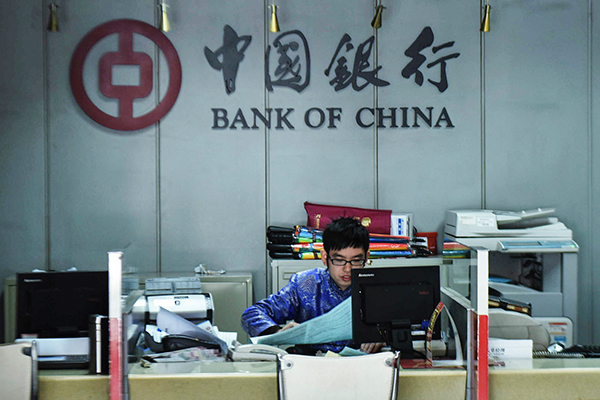Regulator says China can maintain financial stability
By Li Xiang (China Daily) Updated: 2016-03-21 11:11
 |
|
A worker at a Bank of China branch in Hangzhou, Zhejiang province. Chinese banks have the ability to withstand risks with a provision coverage ratio of 180 percent. [Photo/China Daily] |
China is capable of ensuring financial stability and preventing systemic risk, despite the expansion of nonperforming loans, according to a senior banking official.
A slowing economy, high corporate debt and property oversupply in smaller cities have all prompted questions to be asked about the quality of Chinese banks' balance sheets.
To dispel such concerns, Wang Zhaoxing, vice-chairman of the China Banking Regulatory Commission, said the banks have increased their ability to withstand risks with a provision coverage ratio of 180 percent and capital adequacy ratio of 13 percent.
"The risks are manageable and will not lead to systemic financial risk," he said at the China Development Forum on Saturday.
But the banking official admitted that volatility in the stock and foreign exchange markets had made it more difficult for the regulator to manage risks and liquidity in the financial sector.
He said the banking regulator is also carefully watching out for spillover risk from the property market to the banking sector.
China has been considering debt-for-equity swaps to help banks get rid of bad loans from loss-making companies and reduce corporate leverage by allowing the banks to swap the debt they hold for companies' stock holdings.
Yet Wang described such swaps as "a very complex issue".
- Depreciation of yuan not long-term issue
- Practice makes perfect to prepare for Boao forum
- Mercedes-Benz brings new V-Class MPV to China
- Infographic: Charting growth of wedding services
- US to offer ZTE 'temporary relief' on export curbs: official
- Two Chinese carmakers make major acquisitions
- A look of Boao Forum for Asia International Conference Center
- Borgward charts new journey to respectability in Chinese market
















